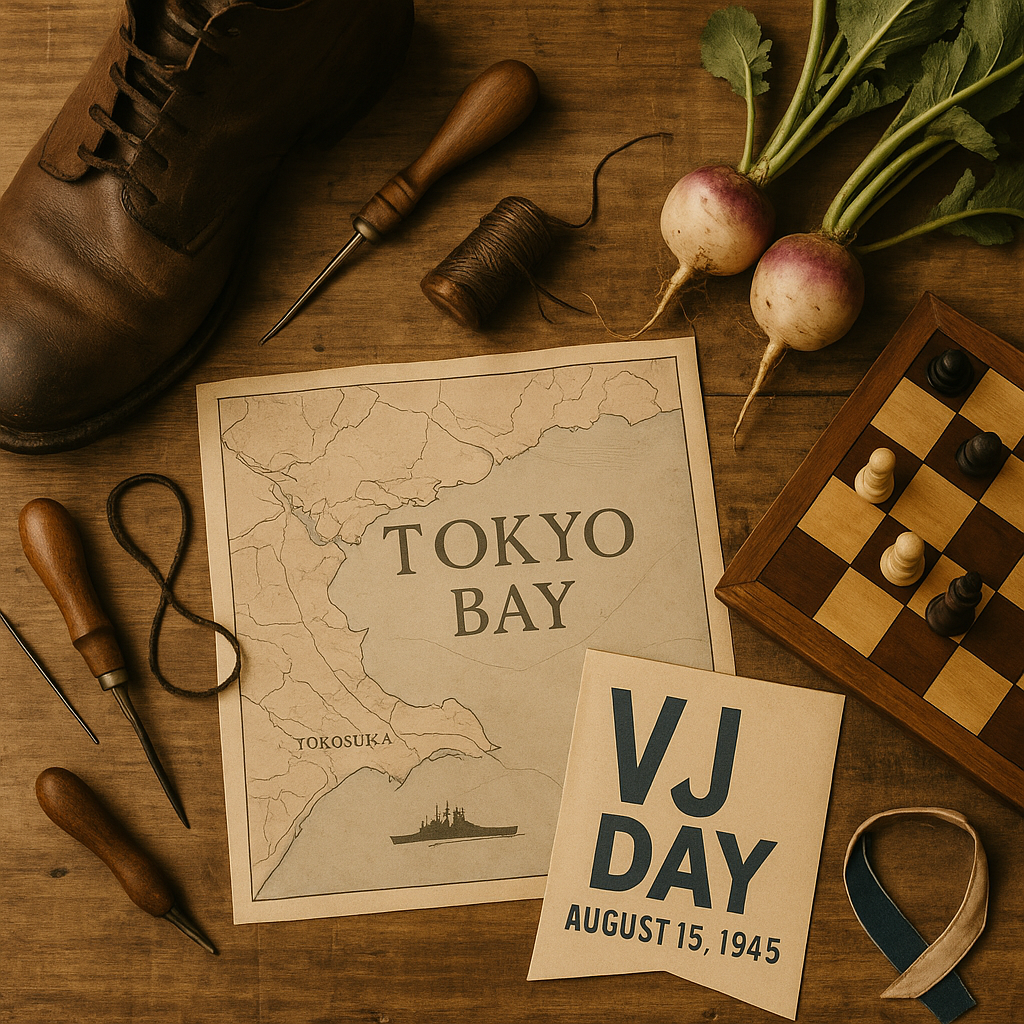Turnips, Chess and the End of the War
In the late summer of 1945, as the world held its breath for news of Japan’s surrender, Walter Whenday, a deaf bootmaker from Hadlow, Kent, remained working quietly at his bench. Between repairing shoes, planting gooseberry cuttings, and sowing turnips, he recorded the small details of daily life alongside the monumental events unfolding overseas. These three diary entries, written in his plain, steady hand, capture the period when WWII finally ended — a time of waiting, relief, and a return to ordinary things.
“Sky overcast.
Went after breakfast to get leather.
Worked till tea time. Planted gooseberry cutting and blackcurrent cuttings.
The whole world is waiting for news of how the Japanese surrender is to be carried out.
”
“Cloudy morning.
Five minute downpour. Brighter afternoon.
Repaired shoes. Sowed turnips
The Japanese have accepted the Allied terms of unconditional surrender and the Allies have ceased offensive operations.”
New York City celebrating the surrender of Japan. They threw anything and kissed anybody in Times Square.
“The weather did not turn out nice.
Worked at repairs. Played chess with Mr. Tester tonight. We drew 1-1.
History may know the conflict which ended yesterday in Tokyo Bay as the Six Year War. It began on a Sunday and ended on a Sunday with a week of anniversaries in between.”
Japanese Surrender at Tokyo Bay, 2 September 1945
General Umezu Yoshijiro signs the surrender on behalf of the Imperial Japanese Army on board USS MISSOURI in Tokyo Bay.
I believe Walter’s phrase “a week of anniversaries” refers to the striking symmetry in Britain’s war dates. For Britain, the conflict began on Sunday, 3rd September 1939, and ended on Sunday, 2nd September 1945, when Japan formally surrendered in Tokyo Bay. The week was crowded with sixth-anniversary dates of the war’s opening events:
1 September 1939 – Germany invades Poland
3 September 1939 – Britain, France, Australia, and New Zealand declare war
6 September 1939 – South Africa declares war
(Canada would follow on 10 September, just beyond that week.)
In Walter’s eyes, that early-September week in 1945 was not only the war’s closing chapter, but a poignant roll call of the days that had opened it six years before.
Reading his words now, there’s no roar of celebration. Victory came quietly, in clouds and downpours, in the steady business of boot repairs and in a garden planted for the future. The war’s end was not marked by the grand sweep of history alone, but by the hands of a deaf bootmaker in Kent, mending what was worn and planting what would grow.



